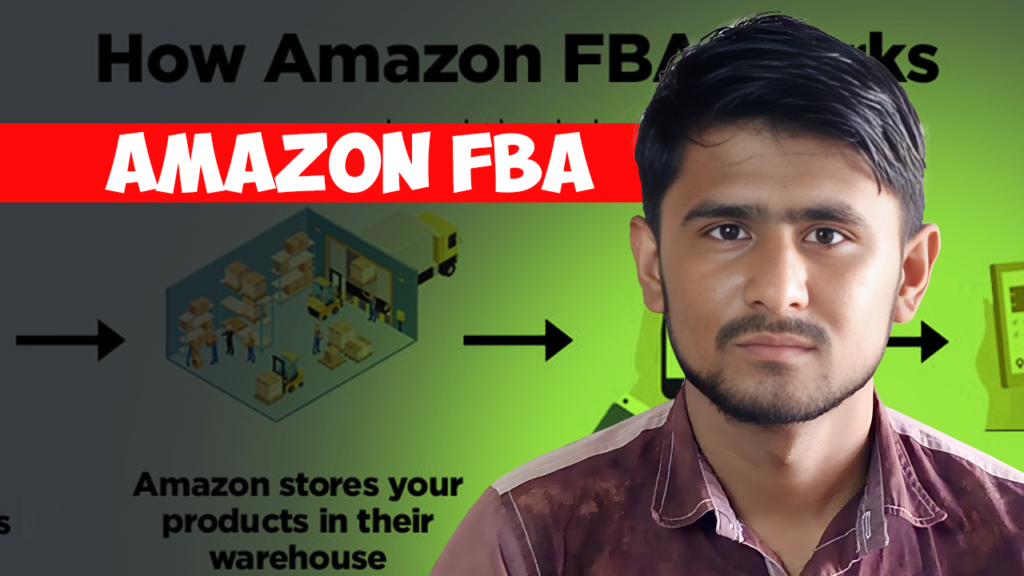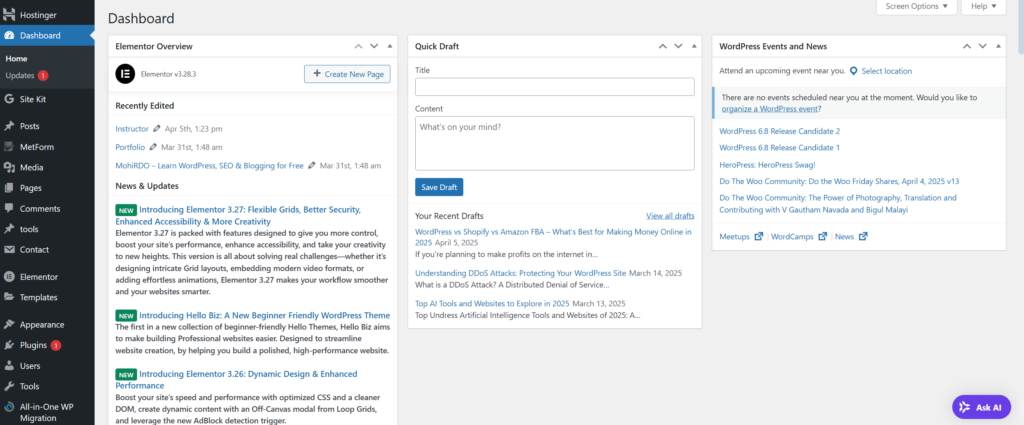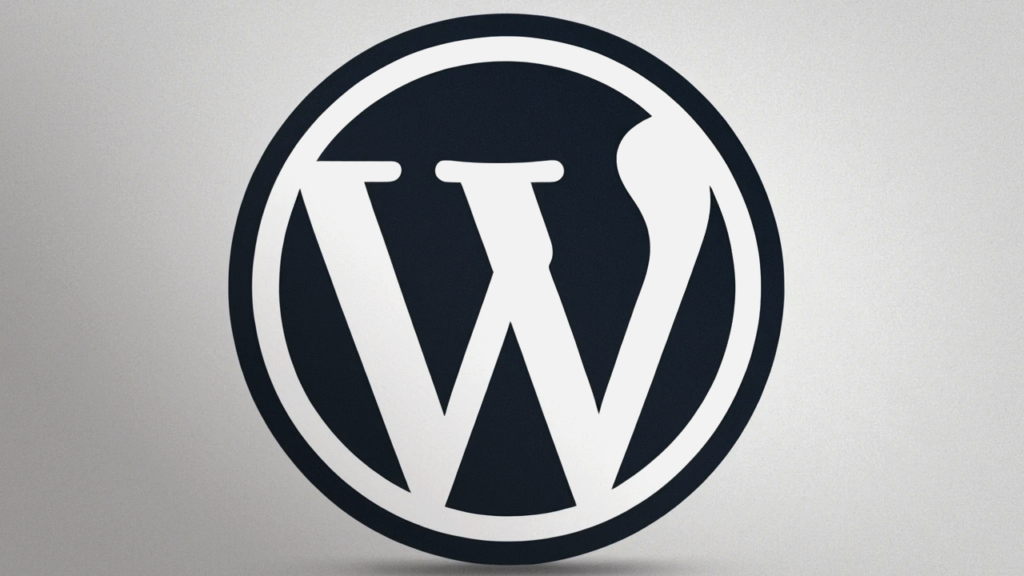If you’re planning to make profits on the internet in 2025, there are several options to choose from. This complete guide compares WordPress, Shopify, and Amazon FBA to help you choose the one that suits your requirements best. Each has distinct advantages to start an online company, and understanding the differences between them is vital for success. If you take the proper approach each of these platforms can be your way to earning a lucrative online earnings.
- Understanding Each Platform for Online Business
- WordPress and WooCommerce for E-commerce
- Shopify as a Dedicated E-commerce Solution
- Amazon FBA as a Fulfillment Solution
- Is WordPress Good for an Ecommerce Site?
- Complete Ownership and Control
- Flexibility and Scalability
- Cost Effectiveness
- Shopify vs WordPress: Which Platform Is Better?
- Ease of Use
- Design and Customization
- Pricing Structure
- Support System
- Amazon FBA: A Different Approach to Online Selling
- How to Begin with Amazon FBA
- Investment Requirements for Amazon FBA
- Profitability of Amazon FBA
- Which Platform Is Most Profitable?
- Profit Potential Comparison
- Getting Started: Platform-Specific Recommendations
- Beginning With WordPress for Ecommerce
- Beginning with Shopify
- How to Get Started with Amazon FBA
- Making Your Decision: Critical Factors to Consider
- Your Technical Skills and Resources
- Time Investment
- Budget Constraints
- Growth and Scaling Plans
- Control vs Convenience
- Conclusion: Choosing the Right Platform for Your Online Business
Understanding Each Platform for Online Business

WordPress and WooCommerce for E-commerce
WordPress is the most used website builder worldwide, enabling more than one-third of the websites that are accessible on the internet. However, is WordPress an ideal platform for eCommerce? Absolutely! With the WooCommerce plug-in, WordPress transforms into an effective eCommerce solution that allows you to have total access to your store’s online.
WooCommerce is the most popular WordPress solution for eCommerce that seamlessly integrates to the WordPress editor, and supplying all the required blocks to create your online store . The open-source platform offers flexibility and options for customization which other platforms cannot match.
The WordPress-WooCommerce combination works particularly well if you want to:
- Control your own data and maintain the complete control of your website
- You can customize each aspect of your online store
- Scale your business with no significant increase in costs for platforms
- Sell physical items such as digital downloads, physical products or other services
- Create a brand that is recognized beyond a market
Although WordPress is free to use however, you’ll have to account in the cost of hosting domain registration, domain hosting, and possibly premium themes or plugins. WooCommerce is a plugin that’s free however, you’ll require an WordPress plan which costs at minimum $25 per month in order for it to be used effectively.
Shopify as a Dedicated E-commerce Solution
Shopify is different from WordPress in the fact that it’s designed especially for stores that sell online. If you’re looking for a ready-to-use solution that doesn’t require any installation, Shopify might be your solution. Because Shopify web stores as well as their websites is one, they’re simpler to create an online store, add products, and take payments in a short time.

Shopify’s Basic plan begins at just $29 per month and is paid annually. It comes with Shopify Payments which cost 2.9 30% plus 30 cents for each on-line transactions . The major benefit of Shopify is the integrations it has to social platforms, including Facebook, Instagram, TikTok and YouTube and marketplaces such as Google and Walmart 3. Walmart.
The platform is perfect for businesses which:
- Do you require a simple setup procedure?
- Don’t need to worry about technical details
- Need robust built-in features for ecommerce
- Do you want integrated payment processing?
- The need for the capabilities of omnichannel selling
Amazon FBA as a Fulfillment Solution
Fulfillment through Amazon (FBA) uses an entirely different approach. Instead of creating the website yourself, FBA lets you use Amazon’s vast market and its fulfillment system. The principle is simple selling it and Amazon will deliver it one at a time..

With Amazon FBA it is possible to ship your items to Amazon’s warehouses. they manage packaging, storage and shipping, returns refunds, as well as customer service. If you are a company owner you’ll only have to concentrate on sales and keep Amazon stock with your goods.
Many entrepreneurs have seen the success they seek through Amazon FBA. According to one study 62% of sellers reported a rise in their earnings in 2020 due to Amazon. A few sellers have reported earning hundreds of dollars a month in profits, while dedicated sellers earning 10,000 or more per month. 4..
Amazon FBA works particularly well when you are looking to:
- Profit from Amazon’s vast customer base
- Eliminate the stress of fulfillment
- Concentrate on the selection of products and also on marketing
- Profit from Amazon’s trust in its customers and Prime shipping
- Start selling without constructing websites
Is WordPress Good for an Ecommerce Site?

If you’re asking yourself if WordPress is suitable for e-commerce it’s an unambiguous yes. WordPress when combined with WooCommerce is a dependable Ecommerce solution that is flexible and can be used for everything from a tiny boutique to larger-scale operations.
WordPress has a number of advantages for online commerce:
Complete Ownership and Control
With WordPress you control your site in totality. There are no restrictions imposed in any way by limitations set forth on platforms like Shopify or market rules similar to Amazon. You can personalize the entire aspect of your shop, from the design to function, by using thousands of themes and plug-ins.
WordPress lets you sell anything from physical goods such as subscriptions, digital downloads, memberships, or services. The WooCommerce plugin is able to handle all ecommerce functions, such as products listings as well as shopping carts, checkout process, as well as payment processing 2..
Flexibility and Scalability
As your business expands, WordPress grows with you. It is possible to add features using plugins without the need to change platforms. When you require appointments, membership areas or complicated product configurations There’s probably a plugin to aid you.
WordPress is able to handle shops of any size with anything from a few products to thousands. With the proper configuration and hosting, WooCommerce can scale to accommodate the demands of big companies.
Cost Effectiveness
Although WordPress needs some initial setup expenditure, it could be cheaper in the long term. WooCommerce is completely free and transaction costs are generally less than Shopify. WooCommerce Payments charges 2.9% plus 30 cents per transaction, which is similar to Shopify However, you can select other payment processors with no extra charges.
In contrast to Shopify where prices increase dramatically as you add features via apps, a lot of WordPress plugins allow only one-time purchases, not regular subscriptions. This could result in substantial savings when your store expands.
Shopify vs WordPress: Which Platform Is Better?
The decision the right one from Shopify and WordPress will depend on your technical abilities as well as your budget and requirements for your business.
Ease of Use
Shopify has the edge in terms of the ease of setting up and usage. Because it was designed specifically for e-commerce it is possible to get a online store running fast without any technical expertise. Everything you require is included and is seamlessly integrated.
WordPress with WooCommerce will require more time to set up and more learning curve. You’ll have to choose a hosting to install WordPress and WooCommerce, then set up the site and set up different options. But, this initial investment provides more flexibility later on.
Design and Customization
While Shopify provides beautiful professionally designed templates, WordPress provides virtually unlimited options for customization. With WordPress you can design exactly the website you imagine without limiting your style or functionality.
WordPress themes are typically cheaper, too. The majority of premium themes are available as an initial purchase, while Shopify themes generally range between $150 to $350.
Pricing Structure
The Shopify pricing structure is straightforward The plans start at $29 per month with Shopify payments included. But, costs can rise when you add apps to provide more features.
WordPress costs can vary greatly based on your requirements. Basic hosting costs start at about $25 per month however, you’ll have to account in expenses for premium themes as well as plugins and possibly help from developers. For smaller websites, WordPress can be more affordable, whereas more complex stores may find Shopify’s all-in-one strategy more affordable.
Support System
Shopify provides 24/7 customer assistance as part of your subscription. With WordPress support, you can count on the plugin developers, the community and your hosting company. This is an important aspect to consider if you’re not tech skilled.
Amazon FBA: A Different Approach to Online Selling
Amazon FBA takes a completely different approach to business online. Instead of creating an individual website for your business, make use of Amazon’s vast market and its fulfillment services.
How to Begin with Amazon FBA
Beginning by using Amazon FBA involves:
- Create Amazon seller accounts Amazon seller account
- Finding profitable products to market
- Purchasing products from suppliers or manufacturers
- The preparation and shipment of inventory to Amazon’s warehouses
- Create Amazon product descriptions Amazon
- Your product’s marketing strategy should generate sales
The most well-known methods to use Amazon FBA is to sell private labels of products. In reality 67% of successful online companies use this technique. Private labeling means manufacturing products under your own brand name, which allows you to establish a well-known brand within Amazon’s marketplace.
Investment Requirements for Amazon FBA
The process of starting your Amazon FBA business requires initial capital. You’ll need money to:
- Inventory (typically the biggest cost)
- Amazon seller account charges ($39.99/month to Professional)
- Photography of products and listing creation
- FBA charges (storage pick and packing shipping)
- Promotion and marketing
The amount you need to invest varies according to the product you sell however, most successful entrepreneurs recommend at least $3,000-$5,000 in order to begin with a significant amount. Although it is technically feasible to begin with a smaller amount, having sufficient capital can increase your chances of success.
Profitability of Amazon FBA
Amazon FBA can be highly profitable if it is done properly. Sellers have profit margins between 20 and 40 percent after paying all Amazon charges. The main factors that affect profit margins are:
- Costs of sourcing and product selection
- Competition in your preferred category
- Pricing strategy
- Marketing effectiveness
- Management of inventory
Although success stories are plentiful but it’s important to recognize there are a few Amazon sellers make significant profits. Amazon is becoming growing more competitive and success requires a strategy, research and perseverance.
Which Platform Is Most Profitable?
The process of determining which platform is the most profitable isn’t easy since profitability is contingent upon various factors like your model for business, product capabilities, expertise, and execution.
Profit Potential Comparison
WordPress/WooCommerce:
- Profit margins at the highest because you don’t have to pay market fees
- Lower ongoing costs once the system is established
- Complete control of customer relationships
- Multiple revenue streams possible (products, subscriptions, affiliate marketing)
- It requires marketing efforts to bring traffic
Shopify:
- Profit margins are high with efficient operations
- Costs for the month that can be predicted
- Solid connection to social channels and
- Built-in tools to optimize conversion
- Marketing is required to increase traffic
Amazon FBA:
- Access to a huge, ready-made audience
- Possibility of high volume sales
- Lower margins as a result of Amazon charges
- Control of the brand’s name
- Customer relationship ownership is not as important.
A “most profitable” platform is the one that is most compatible with your particular business strategy as well as your resources and expertise. Many successful entrepreneurs take an approach that is hybrid, beginning with Amazon to benefit from its built-in traffic, then expanding their business to a WordPress and Shopify store to establish their brand and increase profits.
Getting Started: Platform-Specific Recommendations

Beginning With WordPress for Ecommerce
If you are deciding that WordPress is the best choice for your online business Follow these steps:
- Select a reliable hosting service and the domain Name (sourse)
- Installation of WordPress (most hosts provide an installation with one click)
- Choose and install an WordPress Ecommerce theme
- Install and set up WooCommerce
- Create your own products and create payment methods
- Install the necessary plugins to ensure SEO, security, and functionality
- Create key pages (About, Contact, Terms, etc.)
- Create your marketing plan
To get the best outcomes for the best results, for the best results, invest in an managed WordPress hosting service that is specialized in WooCommerce shops. It will ensure that your website is quick, safe and optimized for e-commerce.
Beginning with Shopify
To start with your Shopify journey:
- Join to receive an account with Shopify. Shopify account (they offer a trial period for free)
- Pick and customize the design of your store
- Incorporate your items and organize your collections
- Install the payment process and options for shipping.
- Set tax settings to be configured
- Register your domain name
- Check out your checkout process
- Market and launch your shop
Shopify’s setup wizard allows you to set up your store even if you’ve got little knowledge of technology.
How to Get Started with Amazon FBA
To begin to start an Amazon FBA business:
- Create an Amazon Seller account for Professionals.
- Explore potential products by with tools like Jungle Scout or Helium 10
- Find suppliers to your selected product (through platforms such as Alibaba)
- Request samples and choose your final product
- Make your product listings using quality images and optimized descriptions.
- Your inventory should be shipped through Amazon’s fulfillment centers
- Start and promote your products
Research on products is the most crucial step to Amazon FBA successful. Find products that have high demand, fair competition and a healthy profit margin considering all Amazon charges.
Making Your Decision: Critical Factors to Consider
If you’re deciding from WordPress, Shopify, and Amazon FBA, consider these important aspects:
Your Technical Skills and Resources
If you’re a beginner with no technical knowledge and don’t have the funds for help with development, Shopify or Amazon FBA could be a better option to start from. WordPress is more flexible, however it requires more technical expertise or resources to employ assistance.
Time Investment
Amazon FBA typically will require the lowest time investment in day-today operations once you have your items listed in the Amazon warehouses. Shopify offers a middle ground however, whereas WordPress stores generally require the highest level of updating and maintaining.
Budget Constraints
With a limited amount of capital for startup, WordPress could be most affordable for small stores. For larger businesses Shopify’s fixed costs could be appealing. Amazon FBA requires more upfront investment in inventory, but it eliminates the need for developing websites.
Growth and Scaling Plans
Consider your long-term vision. WordPress has the best flexibility to create unique business models and also for scaling. Shopify is the best for simple e-commerce expansion. Amazon FBA is able to scale products quickly, but it does so within the Amazon ecosystem.
Control vs Convenience
This is possibly the most crucial consideration. WordPress provides maximum control, but with a minimum of ease of use. Amazon FBA provides maximum convenience but minimum control. Shopify’s balances lie in somewhere in.
Conclusion: Choosing the Right Platform for Your Online Business
There’s no standard answer for the question of whether WordPress, Shopify, or Amazon FBA is best for earning money online. Each platform offers distinct advantages that can be the best option for your unique circumstance.
WordPress combined with WooCommerce is a great choice if you are looking for flexibility, ownership and cost-effectiveness over the long term. It’s particularly suited to companies who want to create an identifiable brand and manage their relationships with customers. If you have the right configuration, WordPress is excellent for eCommerce and will grow along with your business for decades to come.
Shopify is an excellent choice for those looking for a complete e-commerce solution that doesn’t come with technical difficulties. Shopify’s integrated approach lets you start selling fast and seamlessly with a variety of sales channels. If you’re looking for a simple and specific ecommerce options, Shopify could be your ideal option.
Amazon FBA offers unparalleled access to customers and eliminates logistical issues that many entrepreneurs are afraid of. If you’d prefer to focus only on the selection of products and marketing while benefiting from Amazon’s vast client base FBA offers a simple route to sales online.
Many successful entrepreneurs on the internet eventually utilize several platforms, perhaps beginning on Amazon FBA for its built-in traffic, before moving to their own WordPress or Shopify store as their business expands. This approach to hybridization lets you leverage all the advantages offered by each one while also addressing the weaknesses of each platform.
The most effective platform to earn money online is one you’ll utilize regularly and efficiently. You should consider starting on the platform that matches your current abilities as well as resources and your business model. You can easily expand to different platforms as your business expands and grows.














